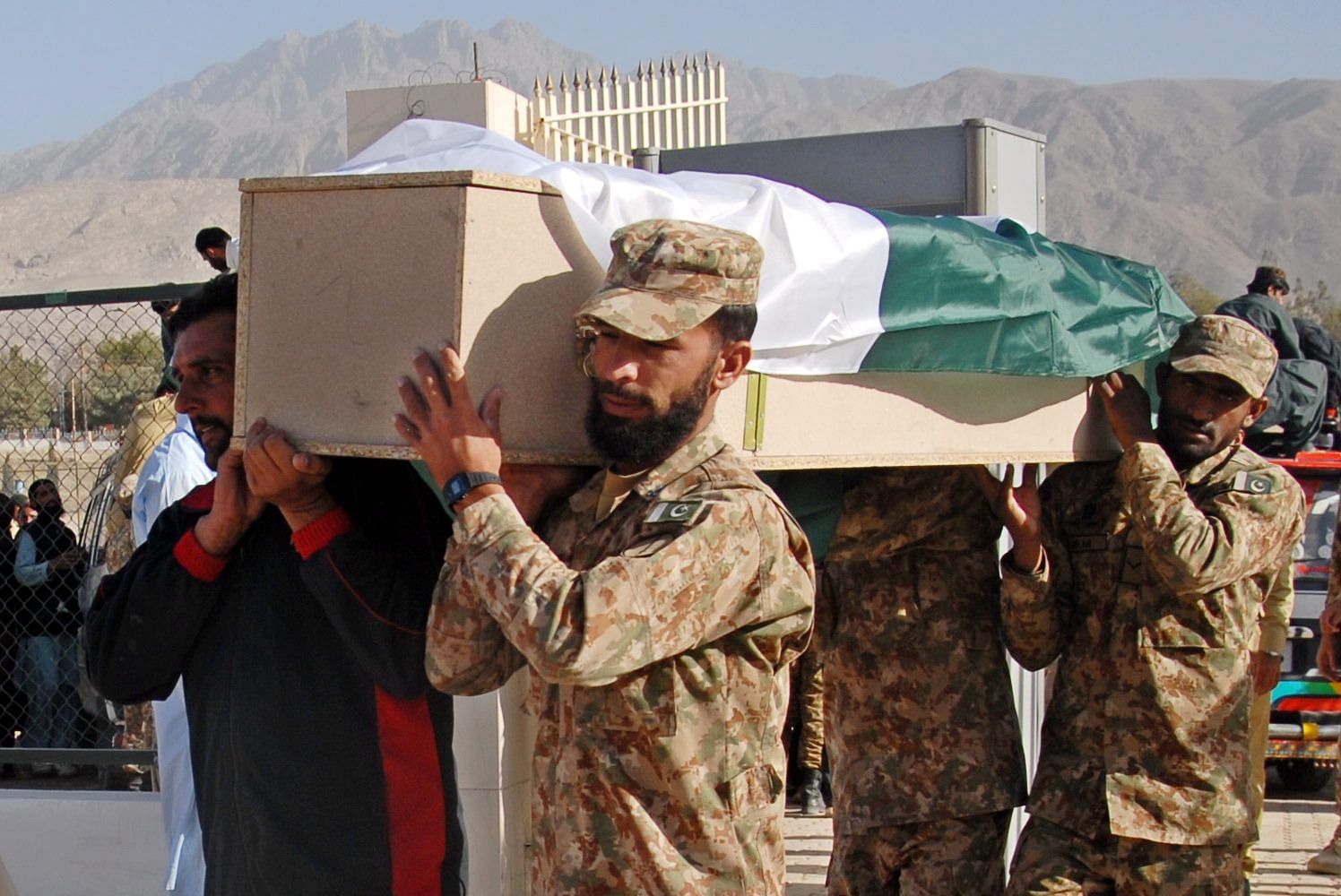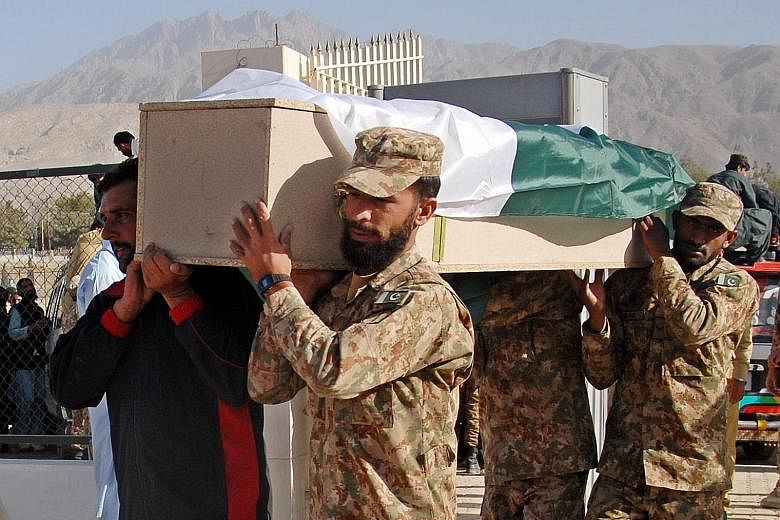•Pakistan's Quetta - where suicide bombers attacked a police academy on Monday night - is known as the fruit basket of Pakistan due to the many fruit orchards in and around the city.
The city is now equally well known for being at the heart of a region plagued by sectarian violence and a separatist movement, and is believed to be the base of operations for Taleban factions.
Pakistan yesterday continued to mourn the deaths of at least 61 people killed by three gunmen who burst into the police academy to target sleeping cadets.
Quetta is in the province of Balochistan, which borders Afghanistan and Iran. It is a poor, underdeveloped region in spite of reserves of copper, gold and gas. Poor local governance has contributed to the rise of militancy, making it one of the country's most restive areas. Different factions of the Taleban and groups with affiliations to the Islamic State in Iraq and Syria (ISIS) and Al-Qaeda, such as Lashkar-e-Jhangvi (LeJ), operate in the northern part of the province. The south is dominated by separatist groups like the Baloch Republican Army fighting for Balochistan's independence.
"Five years ago, the police academy in Lahore was attacked in the same manner. They (terror groups) chose these hardcore state installations to give a message to the Pakistani army and government that you are still vulnerable and open to attacks," said Mr Raza Rumi, consulting editor at The Friday Times and currently visiting faculty at Cornell Institute for Public Affairs.

The Pakistan authorities blamed the LeJ for the police academy attack and said the attackers received instructions from within Afghanistan. Yesterday, a spokesman for the Al-Alami faction of LeJ said they worked with ISIS to carry out the assault.
For Pakistan, keeping a cap on the violence in Balochistan is also important for economic considerations. China is building a US$46 billion (S$64 billion) economic corridor that involves a network of roads, railways and energy pipelines linking western China to a deep seaport in Pakistan. The project passes through Balochistan.
Analysts said terror groups are following a two-pronged strategy of hitting state installations and softer targets for maximum impact. In 2014, in one of the deadliest attacks in the country, the Pakistani Taleban stormed an army-run school in Peshawar, killing more than 100 children.
"The number of terror attacks in recent years has been going down, but the intensity of the attacks that take place has gone up. The seriousness of the attacks signifies how deep the problem of terrorism is in Pakistan," said Dr Rajeswari Pillai Rajagopalan, a senior fellow at the Observer Research Foundation.
Pakistan launched a crackdown after the school attack, but critics said the authorities have become lax again. Some believe that Pakistan has been unable to effectively counter terror because of Islamabad's differentiated approach to terror groups.

The Afghan Taleban, for instance, has links to elements within the Pakistani military and has not been targeted by the army, while the Pakistani Taleban has been the target of counter-terror operations. India, too, has repeatedly accused the Pakistani army of fostering certain terror groups to carry out attacks against India as part of its state policy.
"The problem is the selective targeting of terror groups, which is becoming the bigger problem. Pakistan needs to clamp down on terror groups across the board," said Dr Rajagopalan.

